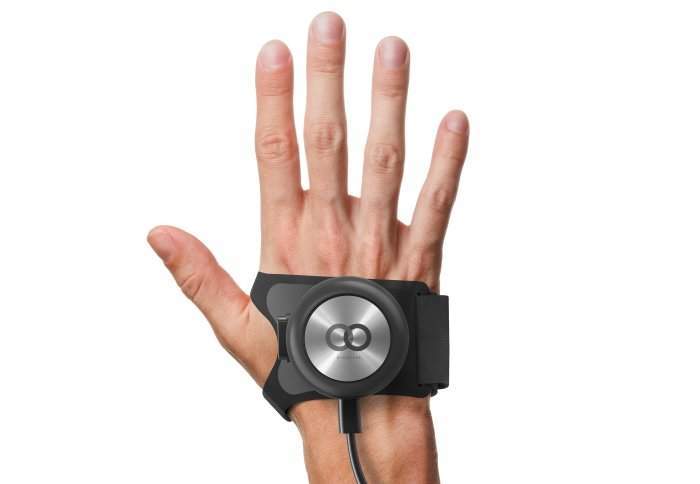
GyroGear, which was founded by former Imperial alumnus Dr Faii Ong, is developing wearable technology that can improve quality of life for people who suffer from hand tremors – such as those with Parkinson’s disease and Essential Tremor.
Their first product, the GyroGlove, uses gyroscopes to counteract hand tremors. This means that everyday tasks – such as eating, drinking and writing – can be performed more easily.
A gyroscope is a spinning wheel or disk which is used to maintain orientation or stability. Like spinning tops that try to stay upright, gyroscopes similarly seek to remain in the same position. They are used in cutting-edge aerospace technology, such as guidance systems for planes and satellites, and gyroscopic effects are also responsible for the stability of a moving bicycle.
GyroGear has received €1.8m through the Horizon 2020 SME Instrument, which offers support for ground-breaking innovative ideas for products, services or processes with the potential to create entirely new markets or revolutionise existing ones. GyroGear was one of only 2 applicants from the UK to win this grant.
The team is currently working with volunteers to further optimise their prototypes and ready the design for manufacture. The funding from Horizon 2020, which is the largest ever European funding programme for research and innovation, will help them bring the GyroGlove, to market.
In search of a solution
Faii Ong came up with the idea for the GyroGlove while studying Medicine at Imperial. He was caring for a 103-year-old woman who was becoming increasingly frail because she was struggling to feed herself due to hand tremors.
Faii said: “I passed by her bed during lunch and saw that she had spent half an hour trying to finish a bowl of soup, most of which had gone down her front.
“I skipped an imminent tutorial to tidy her up. I then asked the busy nurses why nothing was done, and why was she still being served soup. I was told that the lady had severe dementia, had already stopped responding to medication to stop the shaking, and there was nothing more medically that could be done. I was genuinely taken aback, and resolved to find a solution.”
Reviewing over 40 different technologies and concepts, Faii recalled gyroscopes from childhood toys and their current applications in aviation and electronics. Faii looked into whether the same technology could be used to stabilise the hands.
Faii received advice from Professor Jeffrey Karp at the Harvard-MIT Health Sciences and Technology Division and Professor Alison McGregor, Professor of Musculoskeletal Biodynamics at Imperial, to help take his concept to full scale medical device development.
Multidisciplinary environment
The team developed their first prototypes through Imperial College Advanced Hackspace, which provides access to specialist manufacturing equipment, training, and a network of like-minded members, to help anyone at the College turn their ideas into tangible breakthrough prototypes and solutions.
They were also supported through Imperial’s Enterprise Lab, which works to support enterprising activity across the College by providing access to state of the art facilities, training, mentoring and a range of programmes to help Imperial innovators develop new business ideas, hone their pitching skills, and raise their entrepreneurial aspirations.
Faii said: “Imperial has a unique multidisciplinary environment. As a medic, I had access to quality engineers and facilities. I am appreciative and supportive of the grassroot efforts to develop unique solutions at the intersection of multiple disciplines.
“GyroGear has indeed benefitted from the effort, generosity and constant support rendered by ICAH and the Enterprise Lab. There is still significant, untapped potential within the Imperial community, and I still urge every member of the college to take a step to see what can be achieved”
“Given the rigour and repute of the H2020 programme, this latest round of funding is a marked vote of confidence in GyroGear’s progress to date and market potential. To have reached this stage with minimal expenses and just 2 years of development time is exceptional for a medical device company.
“We have seen and validated the effect of the GyroGlove with users. This grant will allow us to hyperfocus far more, and bring the glove even more effectively to market. So much time, guidance, support has been afforded to us by multiple individuals from every walk of life. We must not let any of them down.”
Source: Company Press Release






